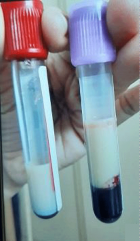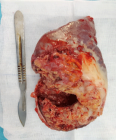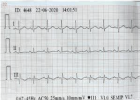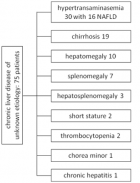Abstract
Review Article
Microbiome-Gut-Brain Axis: AI Insights
Amaan Arif, Prekshi Garg and Prachi Srivastava*
Published: 25 June, 2024 | Volume 8 - Issue 1 | Pages: 001-010
Microbiome-gut-brain axis represents a complex, bidirectional communication network connecting the gastrointestinal tract and its microbial populations with the central nervous system (CNS). This complex system is important for maintaining physiological homeostasis and has significant implications for mental health. The human gut has trillions of microorganisms, collectively termed gut microbiota, which play important roles in digestion, immune function, and production of various metabolites. Some current research shows that these microorganisms strongly influence the brain function and behaviour of individuals, forming the basis of the microbiome-gut-brain axis. The communication between gut microbiota and the brain occurs via multiple pathways: neural pathway (e.g., vagus nerve), endocrine pathway (e.g., hormone production), immune pathway (e.g., inflammation modulation), and metabolic pathway (e.g., production of short-chain fatty acids). Dysbiosis, or imbalance of gut microbiota, has been linked to mental health disorders such as anxiety, depression, multiple sclerosis, autism spectrum disorders, etc, offering new perspectives on their etiology and potential therapeutic interventions. Artificial Intelligence (AI) has emerged as a powerful tool in interpreting the complexities of the microbiome-gut-brain axis. AI techniques, such as machine learning and deep learning, enable the integration and analysis of large, multifaceted datasets, uncovering patterns and correlations that can be avoided by traditional methods. These techniques enable predictive modeling, biomarker discovery, and understanding of underlying biological mechanisms, enhancing research efficiency and covering ways for personalized therapeutic approaches. The application of AI in microbiome research has provided valuable insights into mental health conditions. AI models have identified specific gut bacteria linked to disease, offered predictive models, and discovered distinct microbiome signatures associated with specific diseases. Integrating AI with microbiome research holds promise for revolutionizing mental health care, offering new diagnostic tools and targeted therapies. Challenges remain, but the potential benefits of AI-driven insights into microbiome-gut-brain interactions are immense and offer hope for innovative treatments and preventative measures to improve mental health outcomes.
Read Full Article HTML DOI: 10.29328/journal.ibm.1001027 Cite this Article Read Full Article PDF
Keywords:
Microbiome-Gut-Brain Axis; Artificial intelligence (AI); Dysbiosis; Predictive modeling; Biomarker discovery
References
- Rutsch A, Kantsjö JB, Ronchi F. The Gut-Brain Axis: How Microbiota and Host Inflammasome Influence Brain Physiology and Pathology. Front Immunol. 2020 Dec 10;11:604179. doi: 10.3389/fimmu.2020.604179. PMID: 33362788; PMCID: PMC7758428.
- LaGreca M, Hutchinson DR, Skehan L. The microbiome and neurotransmitter activity. J Sci Med. 2022;3(2). https://doi.org/10.37714/JOSAM.V3I2.90
- Carabotti M, Scirocco A, Maselli MA, Severi C. The gut-brain axis: interactions between enteric microbiota, central and enteric nervous systems. Ann Gastroenterol. 2015 Apr-Jun;28(2):203-209. PMID: 25830558; PMCID: PMC4367209.
- Bonaz B, Bazin T, Pellissier S. The Vagus Nerve at the Interface of the Microbiota-Gut-Brain Axis. Front Neurosci. 2018 Feb 7;12:49. doi: 10.3389/fnins.2018.00049. PMID: 29467611; PMCID: PMC5808284.
- Mayer EA. Gut feelings: the emerging biology of gut-brain communication. Nat Rev Neurosci. 2011 Jul 13;12(8):453-66. doi: 10.1038/nrn3071. PMID: 21750565; PMCID: PMC3845678.
- Cussotto S, Sandhu KV, Dinan TG, Cryan JF. The Neuroendocrinology of the Microbiota-Gut-Brain Axis: A Behavioural Perspective. Front Neuroendocrinol. 2018 Oct;51:80-101. doi: 10.1016/j.yfrne.2018.04.002. Epub 2018 May 16. PMID: 29753796.
- Fung TC, Olson CA, Hsiao EY. Interactions between the microbiota, immune and nervous systems in health and disease. Nat Neurosci. 2017 Feb;20(2):145-155. doi: 10.1038/nn.4476. Epub 2017 Jan 16. PMID: 28092661; PMCID: PMC6960010.
- Sittipo P, Choi J, Lee S, Lee YK. The function of gut microbiota in immune-related neurological disorders: a review. J Neuroinflammation. 2022 Jun 15;19(1):154. doi: 10.1186/s12974-022-02510-1. PMID: 35706008; PMCID: PMC9199126.
- Parker A, Fonseca S, Carding SR. Gut microbes and metabolites as modulators of blood-brain barrier integrity and brain health. Gut Microbes. 2020;11(2):135-157. doi: 10.1080/19490976.2019.1638722. Epub 2019 Aug 1. PMID: 31368397; PMCID: PMC7053956.
- Gong Y, Chen A, Zhang G, Shen Q, Zou L, Li J, Miao YB, Liu W. Cracking Brain Diseases from Gut Microbes-Mediated Metabolites for Precise Treatment. Int J Biol Sci. 2023 Jun 4;19(10):2974-2998. doi: 10.7150/ijbs.85259. PMID: 37416776; PMCID: PMC10321288.
- Wang HX, Wang YP. Gut Microbiota-brain Axis. Chin Med J (Engl). 2016 Oct 5;129(19):2373-80. doi: 10.4103/0366-6999.190667. PMID: 27647198; PMCID: PMC5040025.
- Graham S, Depp C, Lee EE, Nebeker C, Tu X, Kim HC, Jeste DV. Artificial Intelligence for Mental Health and Mental Illnesses: an Overview. Curr Psychiatry Rep. 2019 Nov 7;21(11):116. doi: 10.1007/s11920-019-1094-0. PMID: 31701320; PMCID: PMC7274446.
- Zeng T, Yu X, Chen Z. Applying artificial intelligence in the microbiome for gastrointestinal diseases: A review. J Gastroenterol Hepatol. 2021 Apr;36(4):832-840. doi: 10.1111/jgh.15503. PMID: 33880762.
- Goh KK, Liu YW, Kuo PH, Chung YE, Lu ML, Chen CH. Effect of probiotics on depressive symptoms: A meta-analysis of human studies. Psychiatry Res. 2019 Dec;282:112568. doi: 10.1016/j.psychres.2019.112568. Epub 2019 Sep 17. PMID: 31563280.
- Amato KR, Arrieta MC, Azad MB, Bailey MT, Broussard JL, Bruggeling CE, Claud EC, Costello EK, Davenport ER, Dutilh BE, Swain Ewald HA, Ewald P, Hanlon EC, Julion W, Keshavarzian A, Maurice CF, Miller GE, Preidis GA, Segurel L, Singer B, Subramanian S, Zhao L, Kuzawa CW. The human gut microbiome and health inequities. Proc Natl Acad Sci U S A. 2021 Jun 22;118(25):e2017947118. doi: 10.1073/pnas.2017947118. PMID: 34161260; PMCID: PMC8237592.
- Zhang VR, Ramachandran GK, Loo EXL, Soh AYS, Yong WP, Siah KTH. Volatile organic compounds as potential biomarkers of irritable bowel syndrome: A systematic review. Neurogastroenterol Motil. 2023 Jul;35(7):e14536. doi: 10.1111/nmo.14536. Epub 2023 Feb 13. PMID: 36780514.
- Breiteneder H, Peng YQ, Agache I, Diamant Z, Eiwegger T, Fokkens WJ, Traidl-Hoffmann C, Nadeau K, O'Hehir RE, O'Mahony L, Pfaar O, Torres MJ, Wang DY, Zhang L, Akdis CA. Biomarkers for diagnosis and prediction of therapy responses in allergic diseases and asthma. Allergy. 2020 Dec;75(12):3039-3068. doi: 10.1111/all.14582. Epub 2020 Sep 30. PMID: 32893900; PMCID: PMC7756301.
- Foster JA. Modulating brain function with microbiota. Science. 2022 May 27;376(6596):936-937. doi: 10.1126/science.abo4220. Epub 2022 May 26. PMID: 35617384.
- Silva YP, Bernardi A, Frozza RL. The Role of Short-Chain Fatty Acids From Gut Microbiota in Gut-Brain Communication. Front Endocrinol (Lausanne). 2020 Jan 31;11:25. doi: 10.3389/fendo.2020.00025. PMID: 32082260; PMCID: PMC7005631.
- Jiang Y, Luo J, Huang D, Liu Y, Li DD. Machine Learning Advances in Microbiology: A Review of Methods and Applications. Front Microbiol. 2022 May 26;13:925454. doi: 10.3389/fmicb.2022.925454. PMID: 35711777; PMCID: PMC9196628.
- Meystre S, van Stiphout R, Goris A, Gaitan S. AI-Based Gut-Brain Axis Digital Twins. Stud Health Technol Inform. 2023 May 18;302:1007-1008. doi: 10.3233/SHTI230327. PMID: 37203554.
- Hernández Medina R, Kutuzova S, Nor Nielsen K, Johansen J, Hestbjerg Hansen L, Nielsen M, Rasmussen S. Machine learning and deep learning applications in microbiome research. ISME Commun. 2022 Dec;2(1):98. https://doi.org/10.1038/s43705-022-00182-9
- Hayes CL, Peters BJ, Foster JA. Microbes and mental health: Can the microbiome help explain clinical heterogeneity in psychiatry? Front Neuroendocrinol. 2020 Jul;58:100849. doi: 10.1016/j.yfrne.2020.100849. Epub 2020 Jun 1. PMID: 32497560.
- Shen D, Liu C, Xu R, Zhang F. Human gut microbiota: dysbiosis and manipulation. Front Cell Infect Microbiol. 2012 Sep 27;2:123. doi: 10.3389/fcimb.2012.00123. Retraction in: Front Cell Infect Microbiol. 2013 Dec 19;3:104. doi: 10.3389/fcimb.2013.00104. PMID: 23061053; PMCID: PMC3459033.
- Lu F, Petkova E. A comparative study of variable selection methods in the context of developing psychiatric screening instruments. Stat Med. 2014 Feb 10;33(3):401-21. doi: 10.1002/sim.5937. Epub 2013 Aug 11. PMID: 23934941; PMCID: PMC4026268.
- Cho G, Yim J, Choi Y, Ko J, Lee SH. Review of Machine Learning Algorithms for Diagnosing Mental Illness. Psychiatry Investig. 2019 Apr;16(4):262-269. doi: 10.30773/pi.2018.12.21.2. Epub 2019 Apr 8. PMID: 30947496; PMCID: PMC6504772.
- Rani P, Kotwal S, Manhas J, Sharma V, Sharma S. Machine Learning and Deep Learning Based Computational Approaches in Automatic Microorganisms Image Recognition: Methodologies, Challenges, and Developments. Arch Comput Methods Eng. 2022;29(3):1801-1837. doi: 10.1007/s11831-021-09639-x. Epub 2021 Aug 31. PMID: 34483651; PMCID: PMC8405717.
- Grapov D, Fahrmann J, Wanichthanarak K, Khoomrung S. Rise of Deep Learning for Genomic, Proteomic, and Metabolomic Data Integration in Precision Medicine. OMICS. 2018 Oct;22(10):630-636. doi: 10.1089/omi.2018.0097. Epub 2018 Aug 20. PMID: 30124358; PMCID: PMC6207407.
- Fiannaca A, La Paglia L, La Rosa M, Lo Bosco G, Renda G, Rizzo R, Gaglio S, Urso A. Deep learning models for bacteria taxonomic classification of metagenomic data. BMC Bioinformatics. 2018 Jul 9;19(Suppl 7):198. doi: 10.1186/s12859-018-2182-6. PMID: 30066629; PMCID: PMC6069770.
- Zieliński B, Plichta A, Misztal K, Spurek P, Brzychczy-Włoch M, Ochońska D. Deep learning approach to bacterial colony classification. PLoS One. 2017 Sep 14;12(9):e0184554. doi: 10.1371/journal.pone.0184554. PMID: 28910352; PMCID: PMC5599001.
- Ramezanian Panahi M, Abrevaya G, Gagnon-Audet J-C, Voleti V, Rish I, Dumas G. Generative models of brain dynamics: A review. Quant Biol Neurons Cogn. 2021. https://doi.org/10.48550/arXiv.2112.12147
- Chen X, Ishwaran H. Random forests for genomic data analysis. Genomics. 2012 Jun;99(6):323-9. doi: 10.1016/j.ygeno.2012.04.003. Epub 2012 Apr 21. PMID: 22546560; PMCID: PMC3387489.
- Zhang L, Wang Y, Chen J, Chen J. RFtest: A Robust and Flexible Community-Level Test for Microbiome Data Powerfully Detects Phylogenetically Clustered Signals. Front Genet. 2022 Jan 24;12:749573. doi: 10.3389/fgene.2021.749573. PMID: 35140735; PMCID: PMC8819960.
- Topçuoğlu BD, Lesniak NA, Ruffin MT 4th, Wiens J, Schloss PD. A Framework for Effective Application of Machine Learning to Microbiome-Based Classification Problems. mBio. 2020 Jun 9;11(3):e00434-20. doi: 10.1128/mBio.00434-20. PMID: 32518182; PMCID: PMC7373189.
- Awad M, Khanna R. Support Vector Machines for Classification. In: Efficient Learning Machines. Berkeley, CA: Apress; 2015. https://doi.org/10.1007/978-1-4302-5990-9_3
- Celebi ME, Kingravi HA, Vela PA. A comparative study of efficient initialization methods for the k-means clustering algorithm. Expert Syst Appl. 2013;40(1):200-210. https://doi.org/10.1016/j.eswa.2012.07.021
- Yao YK, Liu Y, Li Z, Chen XY. An Effective K-Means Clustering Based SVM Algorithm. Appl Mech Mater. 2013;333-335:1344-1348. https://doi.org/10.4028/www.scientific.net/AMM.333-335.1344
- Gu J, Wang Z, Kuen J, Ma L, Shahroudy A, Shuai B, Liu T, Wang X, Wang G. Recent Advances in Convolutional Neural Networks. Computer Science, Computer Vision and Pattern Recognition, Neural and Evolutionary Computing. 2017. https://doi.org/10.48550/arXiv.1512.07108
- Hsu T, Epting WK, Kim H, et al. Microstructure Generation via Generative Adversarial Network for Heterogeneous, Topologically Complex 3D Materials. JOM. 2021;73:90-102. https://doi.org/10.1007/s11837-020-04484-y
- Furusawa C, Tanabe K, Ishii C, Kagata N, Tomita M, Fukuda S. Decoding gut microbiota by imaging analysis of fecal samples. iScience. 2021 Nov 22;24(12):103481. doi: 10.1016/j.isci.2021.103481. PMID: 34927025; PMCID: PMC8652011.
- Graves, A. (2014). Generating sequences with recurrent neural networks. arXiv, 1308(0850v5). https://doi.org/10.48550/arXiv.1308.0850
- Hilton CB, Milinovich A, Felix C, Vakharia N, Crone T, Donovan C, Proctor A, Nazha A. Personalized predictions of patient outcomes during and after hospitalization using artificial intelligence. NPJ Digit Med. 2020 Apr 3;3:51. doi: 10.1038/s41746-020-0249-z. PMID: 32285012; PMCID: PMC7125114.
- Charte D, Charte F, García S, del Jesus MJ, Herrera F. A practical tutorial on autoencoders for nonlinear feature fusion: Taxonomy, models, software and guidelines. Inf Fusion. 2018;44:78-96. https://doi.org/10.1016/j.inffus.2017.12.007
- Bank D, Koenigstein N, Giryes R. Autoencoders. arXiv. 2021;2003(05991v2). https://doi.org/10.48550/arXiv.2003.05991
- Ermers NJ, Hagoort K, Scheepers FE. The Predictive Validity of Machine Learning Models in the Classification and Treatment of Major Depressive Disorder: State of the Art and Future Directions. Front Psychiatry. 2020 May 25;11:472. doi: 10.3389/fpsyt.2020.00472. PMID: 32523557; PMCID: PMC7261928.
- Mali D, Kumawat K, Kumawat G, Chakrabarti P, Poddar S, Chakrabarti T, Hussaine J, Kamali A-M, Bolsev V, Kateb B, Nami M. A Machine Learning Technique to Analyze Depressive Disorder. Res Square. 2021. DOI: https://doi.org/10.21203/rs.3.rs-322564/v1.
- Tran BX, McIntyre RS, Latkin CA, Phan HT, Vu GT, Nguyen HLT, Gwee KK, Ho CSH, Ho RCM. The Current Research Landscape on the Artificial Intelligence Application in the Management of Depressive Disorders: A Bibliometric Analysis. Int J Environ Res Public Health. 2019 Jun 18;16(12):2150. doi: 10.3390/ijerph16122150. PMID: 31216619; PMCID: PMC6617113.
- Gao S, Calhoun VD, Sui J. Machine learning in major depression: From classification to treatment outcome prediction. CNS Neurosci Ther. 2018 Nov;24(11):1037-1052. doi: 10.1111/cns.13048. Epub 2018 Aug 23. PMID: 30136381; PMCID: PMC6324186.
- Bravo JA, Julio-Pieper M, Forsythe P, Kunze W, Dinan TG, Bienenstock J, Cryan JF. Communication between gastrointestinal bacteria and the nervous system. Curr Opin Pharmacol. 2012 Dec;12(6):667-72. doi: 10.1016/j.coph.2012.09.010. Epub 2012 Oct 4. PMID: 23041079.
- Butler MI, Bastiaanssen TFS, Long-Smith C, Morkl S, Berding K, Ritz NL, Strain C, Patangia D, Patel S, Stanton C, O'Mahony SM, Cryan JF, Clarke G, Dinan TG. The gut microbiome in social anxiety disorder: evidence of altered composition and function. Transl Psychiatry. 2023 Mar 20;13(1):95. doi: 10.1038/s41398-023-02325-5. PMID: 36941248; PMCID: PMC10027687.
- Kumar A, Pramanik J, Goyal N, Chauhan D, Sivamaruthi BS, Prajapati BG, Chaiyasut C. Gut Microbiota in Anxiety and Depression: Unveiling the Relationships and Management Options. Pharmaceuticals (Basel). 2023 Apr 9;16(4):565. doi: 10.3390/ph16040565. PMID: 37111321; PMCID: PMC10146621.
- Mestre L, Carrillo-Salinas FJ, Mecha M, Feliú A, Espejo C, Álvarez-Cermeño JC, Villar LM, Guaza C. Manipulation of Gut Microbiota Influences Immune Responses, Axon Preservation, and Motor Disability in a Model of Progressive Multiple Sclerosis. Front Immunol. 2019 Jun 14;10:1374. doi: 10.3389/fimmu.2019.01374. PMID: 31258540; PMCID: PMC6587398.
- Bronzini M, Maglione A, Rosso R, Matta M, Masuzzo F, Rolla S, Clerico M. Feeding the gut microbiome: impact on multiple sclerosis. Front Immunol. 2023 May 25;14:1176016. doi: 10.3389/fimmu.2023.1176016. PMID: 37304278; PMCID: PMC10248010.
- Galluzzo P, Capri FC, Vecchioni L, Realmuto S, Scalisi L, Cottone S, Nuzzo D, Alduina R. Comparison of the Intestinal Microbiome of Italian Patients with Multiple Sclerosis and Their Household Relatives. Life (Basel). 2021 Jun 26;11(7):620. doi: 10.3390/life11070620. PMID: 34206853; PMCID: PMC8307959.
- Hasic Telalovic J, Music A. Using data science for medical decision making case: role of gut microbiome in multiple sclerosis. BMC Med Inform Decis Mak. 2020 Oct 12;20(1):262. doi: 10.1186/s12911-020-01263-2. PMID: 33046051; PMCID: PMC7549194.
- Morton JT, Jin DM, Mills RH, Shao Y, Rahman G, McDonald D, Zhu Q, Balaban M, Jiang Y, Cantrell K, Gonzalez A, Carmel J, Frankiensztajn LM, Martin-Brevet S, Berding K, Needham BD, Zurita MF, David M, Averina OV, Kovtun AS, Noto A, Mussap M, Wang M, Frank DN, Li E, Zhou W, Fanos V, Danilenko VN, Wall DP, Cárdenas P, Baldeón ME, Jacquemont S, Koren O, Elliott E, Xavier RJ, Mazmanian SK, Knight R, Gilbert JA, Donovan SM, Lawley TD, Carpenter B, Bonneau R, Taroncher-Oldenburg G. Multi-level analysis of the gut-brain axis shows autism spectrum disorder-associated molecular and microbial profiles. Nat Neurosci. 2023 Jul;26(7):1208-1217. doi: 10.1038/s41593-023-01361-0. Epub 2023 Jun 26. PMID: 37365313; PMCID: PMC10322709.
- Li Q, Han Y, Dy ABC, Hagerman RJ. The Gut Microbiota and Autism Spectrum Disorders. Front Cell Neurosci. 2017 Apr 28;11:120. doi: 10.3389/fncel.2017.00120. PMID: 28503135; PMCID: PMC5408485.
- Zhang F, Wei Y, Liu J, Wang Y, Xi W, Pan Y. Identification of Autism spectrum disorder based on novel feature selection method and Variational Autoencoder. Comput Biol Med. 2022;148:105854. https://doi.org/10.1016/j.compbiomed.2022.105854
- Yin Z, Ding X, Zhang X, Wu Z, Wang L, Xu X, Li G. Early Autism Diagnosis based on Path Signature and Siamese Unsupervised Feature Compressor. arXiv. 2024:2307.06472 [cs.CV]. Available from: https://arxiv.org/abs/2307.06472
- Cheng X, Joe B. Artificial Intelligence in Medicine: Microbiome-Based Machine Learning for Phenotypic Classification. Methods Mol Biol. 2023;2649:281-288. doi: 10.1007/978-1-0716-3072-3_14. PMID: 37258868.
- Xu W, Wang T, Wang N, Zhang H, Zha Y, Ji L, Chu Y, Ning K. Artificial intelligence-enabled microbiome-based diagnosis models for a broad spectrum of cancer types. Brief Bioinform. 2023;24(3). https://doi.org/10.1093/bib/bbad178
Figures:
Similar Articles
-
Microbiome-Gut-Brain Axis: AI InsightsAmaan Arif, Prekshi Garg, Prachi Srivastava*. Microbiome-Gut-Brain Axis: AI Insights. . 2024 doi: 10.29328/journal.ibm.1001027; 8: 001-010
Recently Viewed
-
Advancing Forensic Approaches to Human Trafficking: The Role of Dental IdentificationAiswarya GR*. Advancing Forensic Approaches to Human Trafficking: The Role of Dental Identification. J Forensic Sci Res. 2025: doi: 10.29328/journal.jfsr.1001076; 9: 025-028
-
Scientific Analysis of Eucharistic Miracles: Importance of a Standardization in EvaluationKelly Kearse*,Frank Ligaj. Scientific Analysis of Eucharistic Miracles: Importance of a Standardization in Evaluation. J Forensic Sci Res. 2024: doi: 10.29328/journal.jfsr.1001068; 8: 078-088
-
Sinonasal Myxoma Extending into the Orbit in a 4-Year Old: A Case PresentationJulian A Purrinos*, Ramzi Younis. Sinonasal Myxoma Extending into the Orbit in a 4-Year Old: A Case Presentation. Arch Case Rep. 2024: doi: 10.29328/journal.acr.1001099; 8: 075-077
-
Toxicity and Phytochemical Analysis of Five Medicinal PlantsJohnson-Ajinwo Okiemute Rosa*, Nyodee, Dummene Godwin. Toxicity and Phytochemical Analysis of Five Medicinal Plants. Arch Pharm Pharma Sci. 2024: doi: 10.29328/journal.apps.1001054; 8: 029-040
-
Antibacterial Screening of Lippia origanoides Essential Oil on Gram-negative BacteriaRodrigo Marcelino Zacarias de Andrade, Bernardina de Paixão Santos, Roberson Matteus Fernandes Silva, Mateus Gonçalves Silva*, Igor de Sousa Oliveira, Sávio Benvindo Ferreira, Rafaelle Cavalcante Lira. Antibacterial Screening of Lippia origanoides Essential Oil on Gram-negative Bacteria. Arch Pharm Pharma Sci. 2024: doi: 10.29328/journal.apps.1001053; 8: 024-028.
Most Viewed
-
Evaluation of Biostimulants Based on Recovered Protein Hydrolysates from Animal By-products as Plant Growth EnhancersH Pérez-Aguilar*, M Lacruz-Asaro, F Arán-Ais. Evaluation of Biostimulants Based on Recovered Protein Hydrolysates from Animal By-products as Plant Growth Enhancers. J Plant Sci Phytopathol. 2023 doi: 10.29328/journal.jpsp.1001104; 7: 042-047
-
Sinonasal Myxoma Extending into the Orbit in a 4-Year Old: A Case PresentationJulian A Purrinos*, Ramzi Younis. Sinonasal Myxoma Extending into the Orbit in a 4-Year Old: A Case Presentation. Arch Case Rep. 2024 doi: 10.29328/journal.acr.1001099; 8: 075-077
-
Feasibility study of magnetic sensing for detecting single-neuron action potentialsDenis Tonini,Kai Wu,Renata Saha,Jian-Ping Wang*. Feasibility study of magnetic sensing for detecting single-neuron action potentials. Ann Biomed Sci Eng. 2022 doi: 10.29328/journal.abse.1001018; 6: 019-029
-
Pediatric Dysgerminoma: Unveiling a Rare Ovarian TumorFaten Limaiem*, Khalil Saffar, Ahmed Halouani. Pediatric Dysgerminoma: Unveiling a Rare Ovarian Tumor. Arch Case Rep. 2024 doi: 10.29328/journal.acr.1001087; 8: 010-013
-
Physical activity can change the physiological and psychological circumstances during COVID-19 pandemic: A narrative reviewKhashayar Maroufi*. Physical activity can change the physiological and psychological circumstances during COVID-19 pandemic: A narrative review. J Sports Med Ther. 2021 doi: 10.29328/journal.jsmt.1001051; 6: 001-007

HSPI: We're glad you're here. Please click "create a new Query" if you are a new visitor to our website and need further information from us.
If you are already a member of our network and need to keep track of any developments regarding a question you have already submitted, click "take me to my Query."

















































































































































